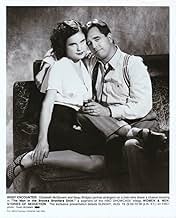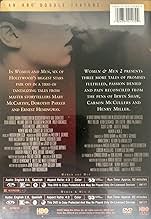For a start, this work is wildly mistitled. "Women and Men, Tales of Seduction" lures unwitting viewers to three literary short stories reenvisioned as short films. If you like short stories, this isn't a problem - but anyone who has done English 101 would recognize that these stories are not actually about seduction at all. Still, if three stories of equal weight had been chosen, there would have been more chance for a satisfying whole. Unfortunately Hemingway's oft taught "Hills Like White Elephants" is a major work that comes after two minor ones (although I must admit my love for anything Dorothy Parker). Who chose THESE stories to film? Worse still, the Hemingway story (a classic of the form) is mauled by none other than Joan Didion. What was she thinking? Revered for its spare use of descriptive narrative in favor of minimalist but revealing dialogue, here "White Elephants" has been stretched and puttied with endless dialogue as well as an odd interpretation which seems to miss the point of the story. How did that happen? There are bright points, however; Elizabeth McGovern is wonderful in a truly depressing story which simultaneously questions gender roles and unwittingly chastises women for breaking out of them. Peter Weller reminds us that his sex appeal exists in a purely auto-erotic manner, thus making the second story almost impossible to comprehend. (In the original version, a cad manages to manipulate his young lover into staying "just one more time" through sheer masculinity and charm. Peter Weller? Uh uh.) Although the story is ruined, his own peculiar appeal still makes it worth watching and possibly in a manner that the perverse Ms. Parker, herself, would have enjoyed... Unfortunately Molly Ringwald's shrieking and lack of any appeal whatsoever rends the piece useless. Still, watch it for the scene where Weller lies splayed-legged on a bed...a truly unusual scene, and the closest the whole film ever comes to a literary moment. After watching all three parts I'm still confused as to who gave the film the go ahead. Someone obviously loves these stories, but not enough to take care of them, or to make us love them as well.































